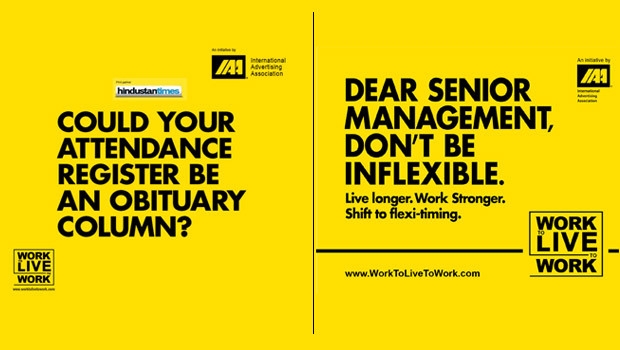Flexible office timings and flexible work locations can ease rush hours.
Recently, the International Advertising Association (IAA), India Chapter came up with a citizen’s campaign urging companies to resort to flexible office timings to ease the rush hour in Mumbai. The campaign, WorkToLiveToWork, urged companies to give their employees the freedom to pick their office hours so that the concept of rush hour becomes passé. The campaign was launched three months after 23 people lost their lives in a stampede at the Elphinstone Road station.
In fact, sometime back, the Central Pollution Control Board (CPCB) also directed Delhi and NCR to consider flexi office timings to ease peak-hour traffic in the region. It’s no wonder that most of the office goers prefer flexi timings, given the frustrating jams and pollution levels during rush hours. Though most organisations agree that flexi timings should be the norm, not everyone is ready to roll out the flexi hours option.
Many potential candidates, that is, the young workforce, refrain from joining companies that adhere to medieval working hour policies.
Shailesh Singh, director & chief people officer at Max Life Insurance advocates work flexibility, “I strongly feel that it should be a no-regret move for all, especially with millennials entering the scene. Work flexibility can be divided into two parts — flexibility of work schedule and flexibility of work location. Whatever it is, we should not compromise on the end goal, which is customer satisfaction. As long as we take care of value creation for the customers, it is fine.”
 Imagine how peaceful and productive your life would be if you don’t have to jostle through hour-long traffic every day, just to reach your office.
Imagine how peaceful and productive your life would be if you don’t have to jostle through hour-long traffic every day, just to reach your office.
Singh further adds, “If you can make the lives of your employees easier and more comfortable, nothing can be more desirable than that. If the time employees spent on commuting can be utilised in achieving goals, then it’s a win-win situation for all. We, at Max Life Insurance, offer flexi work hours for all our employees, except for direct customer-facing roles.”
Echoing similar thoughts, Ravi Mishra, senior vice president- HR & admin, Birla Carbon, says, “In three to four years, it will be the norm across India. It is a 100 per cent win-win situation for all the stakeholders. About three and a half years back I introduced this concept in my organisation and it has worked very well. We never faced any problem related to timing. Putting in late hours doesn’t solve anything. Five or six years back travelling was cumbersome only in Mumbai, but now it is the case everywhere.”

What do the corporates fear? Losing out on productivity? Alok Mehta, executive director, HR, Hexagon feels that flexible timing does not affect productivity at all. “Instead of feeling wasted on the road, it makes sense to be completely integrated whenever you are there. Considering the congestion and mayhem on the roads, it is the way forward. Companies should promote work from home and flexi hours, as and when needed. What is stopping some companies from adopting this change is their hierarchical way of looking at things. What they don’t realise is that they doubt their own capabilities in managing the team rather than other people’s.”
Not only does flexi timing address traffic woes, it also helps reduce office politics to a great extent. Work flexibility is being embraced by companies because of the positive impact flexibility has in retaining its employees.
What is stopping the companies from adopting flexi work schedule is the wrong belief that people don’t work or that the office space is rendered useless if half the strength is working from home! But the office, as a concept, has lost its sanctity. There can be an office wherever you are sitting. Opening the data on your laptop is easier than opening physical files. And collaborations can happen with the help of connectivity.
Mishra adds that there should be a prime time when all the people have to be in office. “In Mumbai, a senior HR personal died last year while commuting to office. There has been a sudden increase in health issues. And we end up wasting crucial minutes on the road—precious time that can be devoted to the company or our family, which will ultimately contribute to the GDP of the country.”
Flexible work arrangements attract employees as they inculcate a sense of freedom, which in turn, helps them stay motivated to do better work.
Value our content... contribute towards our growth. Even a small contribution a month would be of great help for us.
Since eight years, we have been serving the industry through daily news and stories. Our content is free for all and we plan to keep it that way.
Support HRKatha. Pay Here (All it takes is a minute)




































